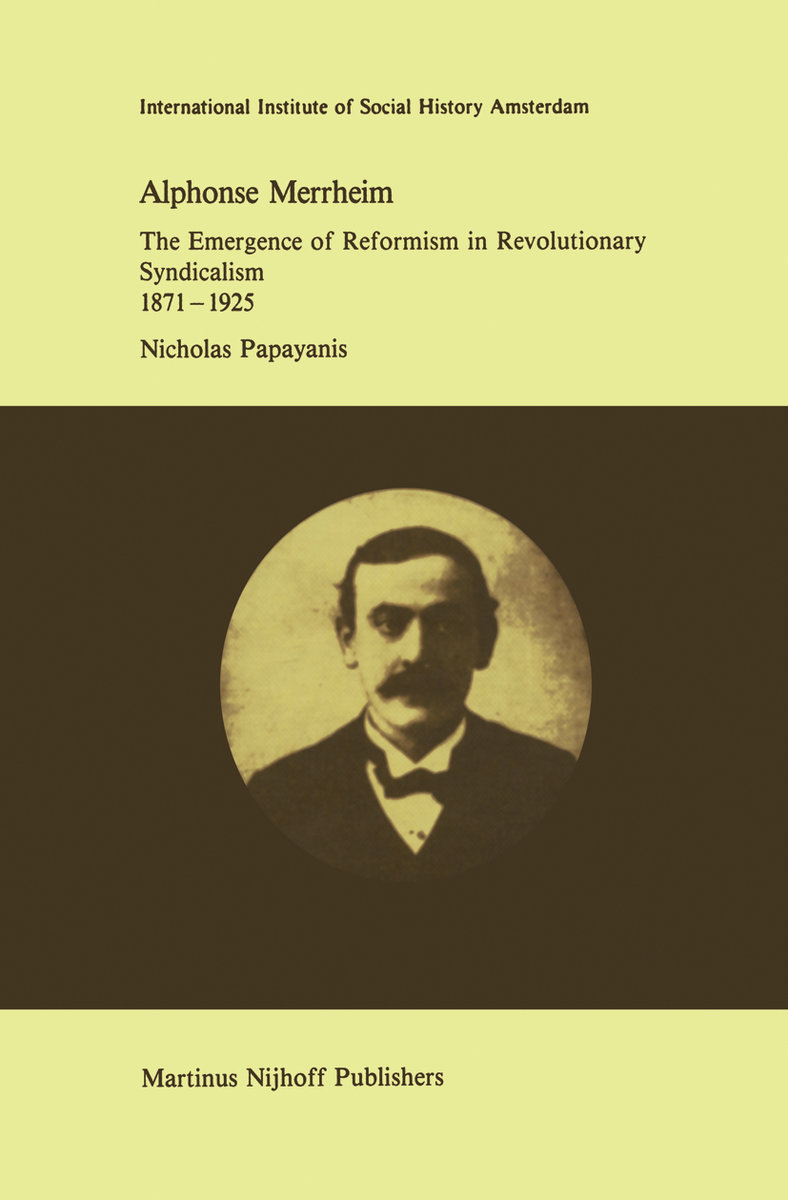This is apoliticalbiography ofAlphonseMerrheim, asignificant leader of the Conf6d6ration G6n6raledu Travail(CGT)intheyears between 1904 and 1923 and the most important member of the Federation of Metalworkers during the sameperiod. Hewas born inthe Nord in 1871 and becameaworkeratanearlyage,firstinmetallurgythanintextiles and finally once more in metalworking. In his ideologicalevolution hepassed through asocialistpoliticalpartyandthenconvertedtorevolutionarys- dicalism. In his peculiar fusion of theory and practice, Merrheim represented a form of revolutionary syndicalism that helps define the characteristics of that movement. He believed,alongwithother revo- tionary syndicalists, that one day a workers' general strike would ov- throw capitalism. But the syndicalist movement wouldpreparethat ev- tualitybystrengtheningtheworkersthrough socialreformsandbycreating their class consciousness through education. Merrheim, however, p- ticipatedsothoroughly intradeunionactivityandstudiedtheorganization of capitalistindustry so carefullythat he cametoemphasizetheprepa- tions for such a generalstrike much more than thestrikeitself. The test of his attitude cameon theeve of, during, and immediately afterWorld War I; for contrary tothe demands of certain militant and revolutionary workerswhobelievedthatthethreatofwar andthenthedislocationcaused by the war demanded a revolutionary response, Merrheim persistently stressedthe dangers ofsuch anaction before the adequatepreparation of the workers. Hissteadfast refusaleventorespondtothestrikeactions of some ofhisown metalworkers in 1919 indicates the central contradiction between hisrevolutionary theory and reformistpractice. This book examinesindetailMerrheim'sevolution fromarevolutionary to areformer. Insodoingit alsoshedslightonanequallysubstantialtopic, namely,howacertaintypeofworkerrespondedtoindustrializationinthe late nineteenth and earlytwentiethcenturies. Merrheim is an interesting figure,too, becauseofhispositioninthelabormovement, foritrepresents a unique focalpoint forthestudy oflaborhistory. Merrheim enteredthe Frenchlabormovement in the 1890s and remainedactiveinituntil 1923. During that periodhewas, successively, alocalunion leader,co-secretary xii of a nationallaborfederation, and animportant figurewithinthe CGT. Never thesecretary-generaloftheCGT, hewasneverthelesstheconfident of thesecretary-generalfrom 1909, L6on Jouhaux.



